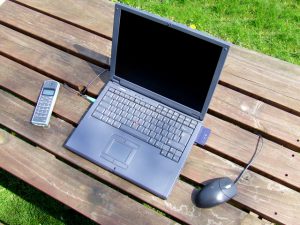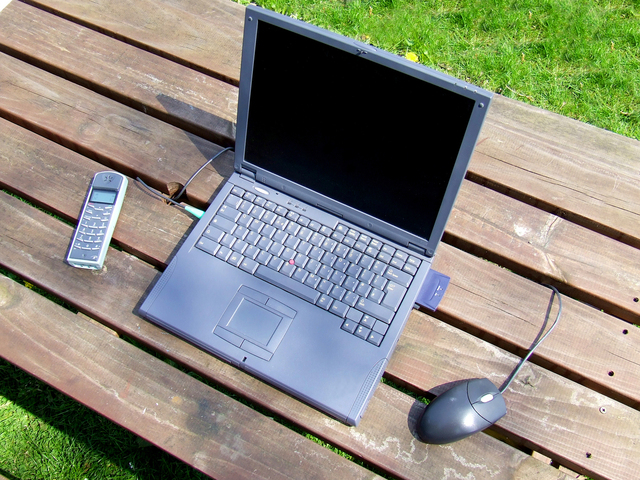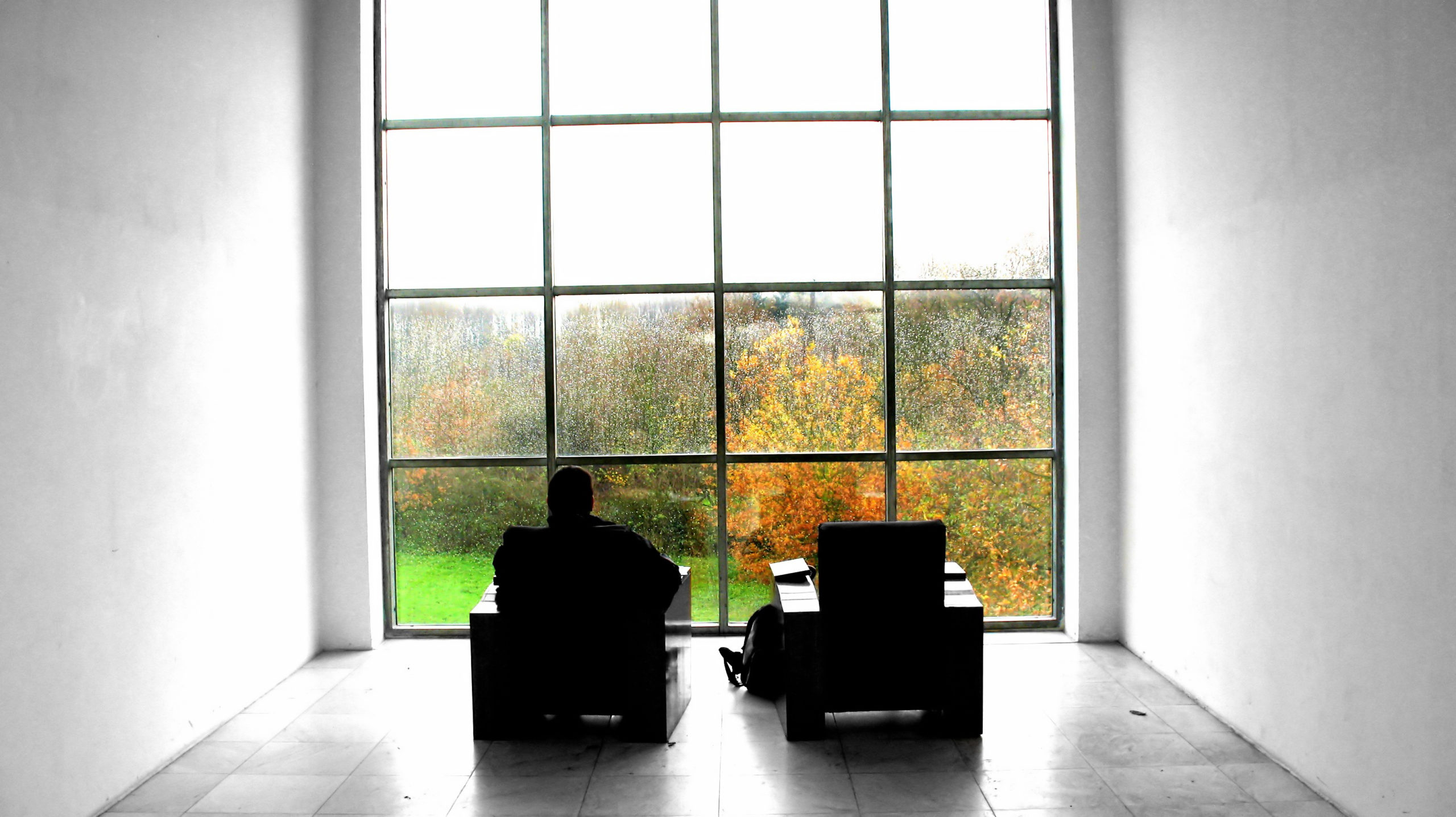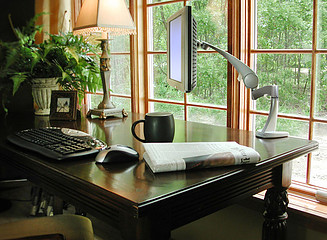 What are the pros and cons of working at home? Well, there are several – on both sides – as there are to just about everything in life if you think hard enough. Working from home is no exception. There are numerous pros, if you set your home work environment up strategically. And, there are some downsides as well.
What are the pros and cons of working at home? Well, there are several – on both sides – as there are to just about everything in life if you think hard enough. Working from home is no exception. There are numerous pros, if you set your home work environment up strategically. And, there are some downsides as well.
Pros to Working at Home
Work freedom and flexibility: Working from home often allows you much greater work freedom and flexibility. There is no one looking to see how busy you are, assessing how you do things, or judging whether you are day dreaming or critically thinking through a problem. You can often be flexible about when, where, and what you work on at any given part of a 24-hour day. Some people do their best work at 1:00 am while others tend to drift away and are gone for ever mid-afternoon. Working from home may be able to give you the freedom to work in a way that works best for you. Of course, you may still governed by needs of clients and bosses and other people’s work schedule. It really depends on what you do.
But think about it:
- 14% of Americans have actually changed jobs to shorten the commute
- 46% of companies that allow telecommuting say it has reduced attrition.
- 72% of employers say telework has a high impact on employee retention
Potential for higher productivity: People who work at home are often much more productive because the distractions of the typical office environment are – well, still at the traditional office. There is no water cooler conversation, no latest bad date story on Monday morning, no replaying of the Monday Night Football on Tuesday morning, no birthday parties, or whining, or countless other distractions. Now of course there’s Facebook, chat, the Internet, the laundry, the TV and Netflix, and the unwalked dog; however, these are within YOUR control. Fewer distractions means greater productivity. Also, a less-stressed and more satisfied worker also tends to perk up productivity.
Think about it:
- Some big companies like Best Buy, British Telecom, Dow Chemical, and many others show that teleworkers are 35-40% more productive.
- Businesses lose and estimated $600 billion a year in workplace distractions.
- Sun Microsystems’ experience suggests that employees spend 60% of the commuting time they save performing more work for the company. (Pretty good deal for the company, no?)
- American Express home-based workers produced 43% more than their office-based counterpoints.
No dress code: Few home offices have dress codes – I hope! You can throw away hose and heels and ties and jackets. Though some people say the can stay in their PJ’s and sweats for days and still do great work, showering is always a plus. We will talk more about dressing for success in the home office later; however, hose, heels, and ties are optional.
Convenience: Life is full for most of us. There are kids and errands and events and volunteering and house cleaning and aging parents and on and on and on. Working from home can be very convenient when the needs of others are a priority – if handled well.
No commute: We’ve already talked about the commute – and benefits of not commuting. You save a lot of wear and tear on your bank account, your health, your car, and your soul.
Tax write-offs: This isn’t a course on how to finance a home office. However, there are some pretty great home office tax breaks if you understand and follow all the rules. I’d see an expert on this topic before signing the bottom of your tax form.
Less stress: If done well, working from home can significantly reduce the amount of stress in your life. From the stress of commuting, wasting time at work, hard-to-deal-with co-workers, the frequent negativity and poor behaviors in the typical office, to the feeling of having things under your control, home office workers can really improve their life in the stress category.
More money: In addition to the money you actually make for doing your job, working from can add more money to your bottom line through the money you save by not commuting, through the money you save with unnecessary overhead, and through the money you make by being more productive.
Better work-life balance: This may be obvious, but if you have a great life with a spouse, kids, pets, friends, etc. and those things are at home, then working from home keeps you closer to the action. This is a top reason for many when deciding to make the move.
Cons of Working at Home
Working from the home office isn’t all fun and games, though, and it isn’t the end-all of professional success. Working from home is hard!
Requires discipline: It requires some serious discipline to get out of bed, get dressed, and get to work without first doing laundry, watching a movie, running errands, playing, etc. People who have little discipline and self-control either better stay in the office or develop some discipline quickly.
Requires technology know-how: Telecommuters must be comfortable with technology, remote access tools, teleconferencing software, and online tech support.
Requires self-motivation: Working from home also requires self-motivation: Like discipline and self-control, successful home office workers must be self-motivators. They can’t be the type who needs to be told what to do when. And they need to know when it’s time to learn new skills. Staying on time and on budget for your boss or client is essential and it requires some self-starting and lots of self-motivation.
Requires self-direction: Working away from a supervisor or team requires one to be self-directed. This means knowing what to do when and how to best do it. Often it means staying ahead of deadlines and maintaining a cushion for when things don’t go as planned.
Reduces the outside pressure to be busy: One thing that a lot of home office workers talk about is their ability to work when and how much they need without the feeling they need to look busy just because they are at work. Successful home office workers, especially those who are project-based, learn when they need to work hard and long hours on a project and when they can take a sunny afternoon dog walk to the park for a break or a long weekend with the family.
Requires office overhead and security: There are costs associated with working from a home office. The office setup, furniture, equipment, supplies, and security can add up. Some states have strict tax laws. Some communities and HOAs have rules against working from home.
May lead to isolation and loneliness: Working at home can be very lonely. The isolation is often a number one complaint of those who work full-time at home. People who thrive on the hustle and bustle of the busy and energetic office environment may find it a significant challenge to adapt to being by themselves. We will talk about some tips to overcome isolation, but it may mean that social life choices have to be changed so that non-working hours meet the social needs. Similarly, a lot of social interaction including lunch, happy hour, and after-hour gatherings are with co-workers. Home office workers often have to find their social network in other places.
May impact career advancement: Similarly, there may be some career fears from the out-of-sight-out-of-mind mentality. Successful telecommuting situations must have performance-based measurement systems and productivity instead of “presenteeism” attitudes. And, telecommuters must maintain regular communication with their traditional coworkers and managers.
Loss of living space: It might not seem like a big deal, but the first time an overnight guest comes for a visit and the only guest room is now your home office, that loss of living space may become a very big deal. It is even more of a big deal for those who live in small spaces. We will talk about some innovations that can minimize the space needs of a home office so that an overnight guest every now and then doesn’t stop production.
Communication limitations: Many people say that it is hard to communicate effectively with coworkers, bosses, and clients when they aren’t face-to-face. For some, it takes some serious adaption to communicating via email, chat, phone, web conferences, and online video. Body language and facial expressions do provide a lot of clues to what’s going on behind a person’s words. Home office workers need to work to optimize their communication including learning how to best use technology and making some extra efforts to get face-to-face when needed.
Boss’s paranoia: Some bosses are just paranoid and assume that if you aren’t in the office you are on the ski slopes or playing Frisbee at the beach instead of working and so aren’t supportive of working from home. This can be a real problem for some business environment when telecommuting all of a sudden becomes an option. It is also possible that telecommuters fall into the “out-of-sight-out-of-mind” hole when it comes to promotions, advancement, special awesome projects, awards, or other recognitions. Each person’s situation is different. And though telecommuters may be at a disadvantage, there may also be things to keep your name at the top of the list.
Danger of overworking: Many professionals who work from their home office say that a big challenge is less in finding the discipline and motivation to work and more in overworking. The office is well – right there down the hall, so, one more hour, one more milestone, one more sales call is pretty easy to do. Leaving it at the office is also a challenge. We all have bright ideas in the middle of the night, but when the office is in the next room, it is easy to lose sleep and turn on the computer.
Harder to learn from coworkers: In many office environment, a lot of learning goes on – we all learn from our bosses and informal mentors, from those who have been there and done that, and from our coworkers. Working from the home can really dampen our learning environment. We will talk about how to gain some of the learning opportunities back by using some great online tools and optimizing our business social networks.
The Bottom Line?
Yes. There are numerous pros and cons to working at home. It may take some thought and work to realize the pros and mitigate the cons.
What do you think? What are your best pros related to working from home? What are your biggest fears? How have you overcome some of your personal cons? Post some of your thoughts and tips and tricks. Everyone of us could use some help!
 A question I get sometimes from those who just can’t see themselves working from home is “Who Works from Home?” The answer: More and more people in more and more professions. Let’s look at some of the examples.
A question I get sometimes from those who just can’t see themselves working from home is “Who Works from Home?” The answer: More and more people in more and more professions. Let’s look at some of the examples.

 What are the pros and cons of working at home? Well, there are several – on both sides – as there are to just about everything in life if you think hard enough. Working from home is no exception. There are numerous pros, if you set your home work environment up strategically. And, there are some downsides as well.
What are the pros and cons of working at home? Well, there are several – on both sides – as there are to just about everything in life if you think hard enough. Working from home is no exception. There are numerous pros, if you set your home work environment up strategically. And, there are some downsides as well.
 So why work from home? Why do some people decide to take the plunge (in some people’s mind) and decide to move their office either part-time or full-time to their extra bedroom, kitchen table, study, breakfast nook, or other reasonably suites space in their home? There are several common reasons people voice and no doubt unlimited individual personal and unique situation reasons. Let’s look at some top stated reasons first. Do any of these strike a chord with you?
So why work from home? Why do some people decide to take the plunge (in some people’s mind) and decide to move their office either part-time or full-time to their extra bedroom, kitchen table, study, breakfast nook, or other reasonably suites space in their home? There are several common reasons people voice and no doubt unlimited individual personal and unique situation reasons. Let’s look at some top stated reasons first. Do any of these strike a chord with you?


 Welcome to Home Office Insights! I am glad you clicked in for a visit. This site is dedicated to all the professionals who are working out of their home office – those just beginning and those seasoned professionals who have figured out how to be productive, efficient, and highly satisfied. It isn’t easy. Each of us has our own particular challenges. Some of us need to focus on work habits. Others may need to focus on setting up a productive and efficient office space that we LOVE to be in for hours at a time. Still others may need to learn about technology that can make our lives easier. Some may just need some encouragement and inspiration. If you fit one or more of these groups, then you are in the right place.
Welcome to Home Office Insights! I am glad you clicked in for a visit. This site is dedicated to all the professionals who are working out of their home office – those just beginning and those seasoned professionals who have figured out how to be productive, efficient, and highly satisfied. It isn’t easy. Each of us has our own particular challenges. Some of us need to focus on work habits. Others may need to focus on setting up a productive and efficient office space that we LOVE to be in for hours at a time. Still others may need to learn about technology that can make our lives easier. Some may just need some encouragement and inspiration. If you fit one or more of these groups, then you are in the right place.